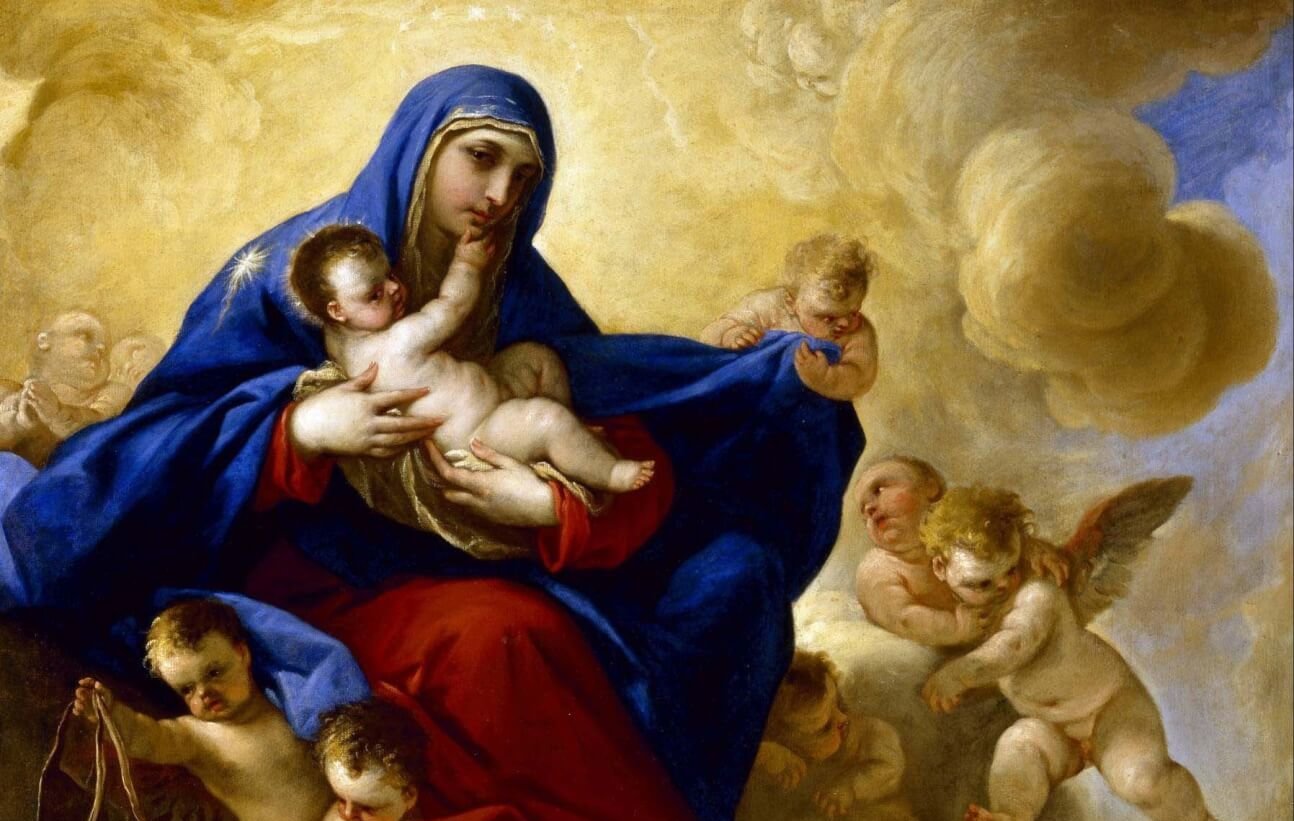There are just two days left in our Novena for the Holy Souls in Purgatory. Every day, I have been sending you these brief articles on these themes because the more you know about your Faith, the more you will love it, and the more likely you will be to practice it. Every day, we have been praying for over a quarter million of the faithful deceased, at Mass daily at noon, during the Chaplet of Divine Mercy at 3 pm, and then again in the nightly Family Rosary Across America at 7 pm. (All times are Central.) Wouldn’t it be wonderful if all 300,000 souls got out of Purgatory this week because of your prayers and the grace and clemency of God? I would like to imagine three large football stadiums filled to the rafters, like the University of Michigan, and those 300,000 souls now in heaven rooting for us down here below at Relevant Radio!
Regarding the Souls in Purgatory, I have heard them called the “Poor Souls in Purgatory” as well as the “Holy Souls in Purgatory.” Which is it and why? Perhaps it’s both. Why “poor souls”? First, because they are not in heaven yet, and that is a deprivation. Second, because they are truly suffering for the remnants of their sin. But the irony is that they are happy to suffer, much like a husband would willingly take the place of his wife who is suffering from cancer, or parents would willingly take the place of their seven-year-old son who has leukemia. Out of love, people are willing to suffer.
Still, we should not trifle with the idea of Purgatory. On May 13, 1917, Lucia asked the Blessed Virgin Mary about her young friend Amelia who had recently died and Our Lady told her she would be in Purgatory until the end of time. That is indeed a daunting answer, certainly true, but also a metaphysical riddle. Because when a soul is completely purified, it never changes again, and that is the end of time and the beginning of eternity.
We also call them the “Holy Souls in Purgatory” because they are in fact holy, and soon will be in heaven, because they died in the State of Grace, they had confessed and repented from their mortal sins, but they had run out of time to offer sufficient expiation for their sins.
When a person commits a sin and goes to Confession, their sorrow could be perfect or imperfect. Venerable Archbishop Fulton Sheen explained it this way: if a boy playing ball with his friends makes a mistake and the baseball breaks a window, he can go in crying to his mother, “I am so sorry I broke the window because now you will punish me.” That’s an example of imperfect contrition. But if he were to say, “Mom, I am so very, very sorry that I broke the window. It’s all my fault. You and Dad work so hard around here and make so many sacrifices, you deserve much better. I am very, very sorry. What can I do to make up for that?” That’s an example of perfect contrition. During their time in Purgatory, holy souls evolve into that sentiment of perfect contrition, and when they arrive, they are ready for heaven.


